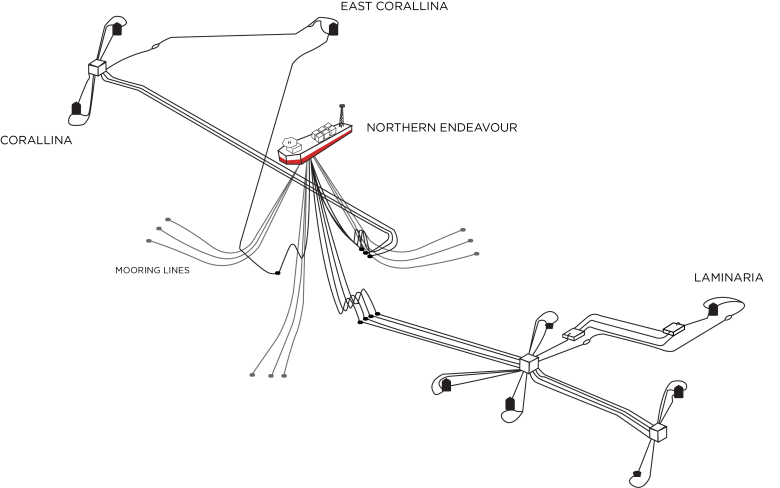Why we’re decommissioning the Northern Endeavour
Following liquidation of the former private owner, the Commonwealth now owns the Northern Endeavour FPSO. As a result, the Australian Government plans to decommission, disconnect and dispose of the FPSO and remediate the Laminaria-Corallina oilfields.
Decommissioning is a normal and planned activity carried out in the offshore petroleum industry. It involves safely removing and recycling oil and gas production infrastructure. It also includes rehabilitating and removing risks to the surrounding marine environment.
How we’re decommissioning the Northern Endeavour
We aim to complete the decommissioning work efficiently and safely, ensuring value for money and protecting the surrounding environment. We’re managing the program across 3 phases.

